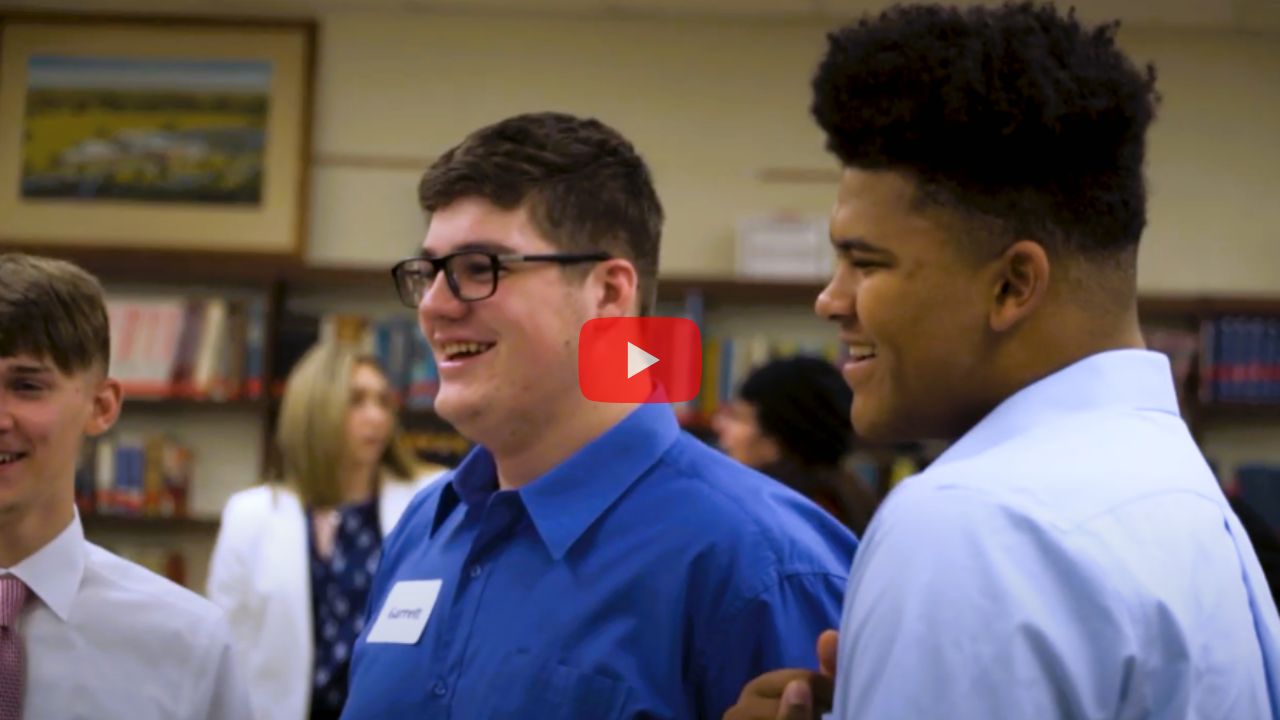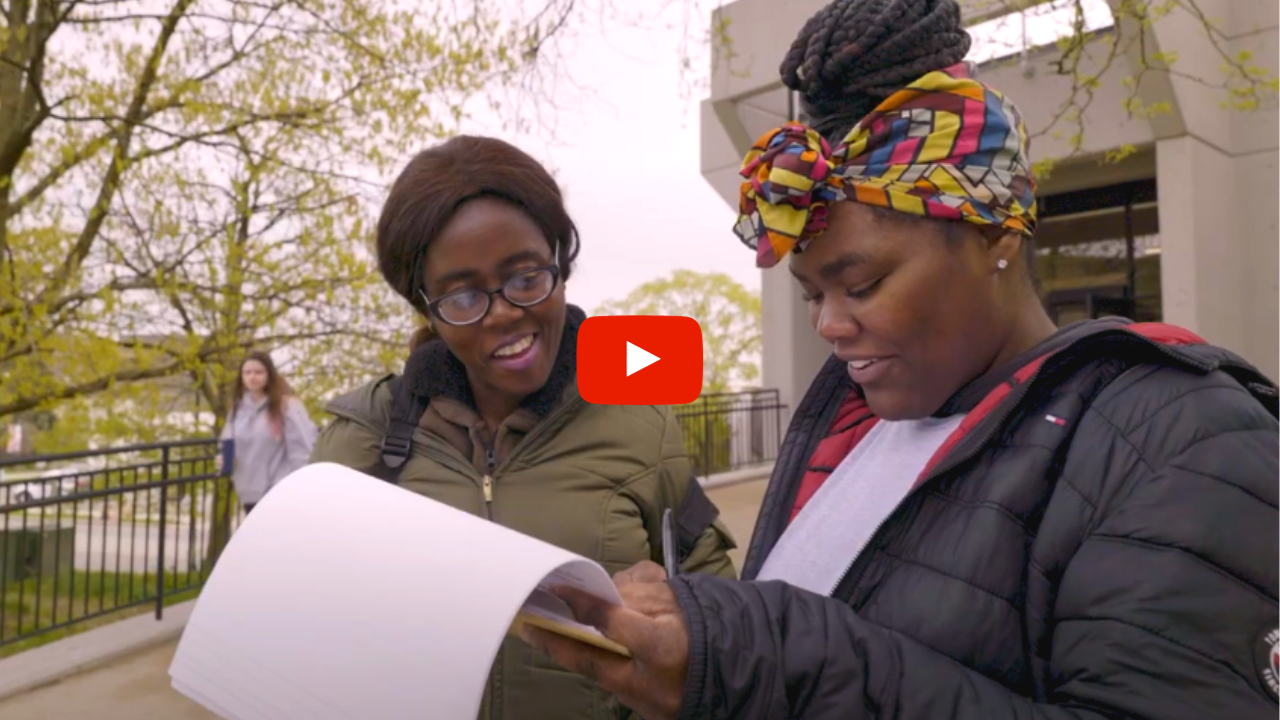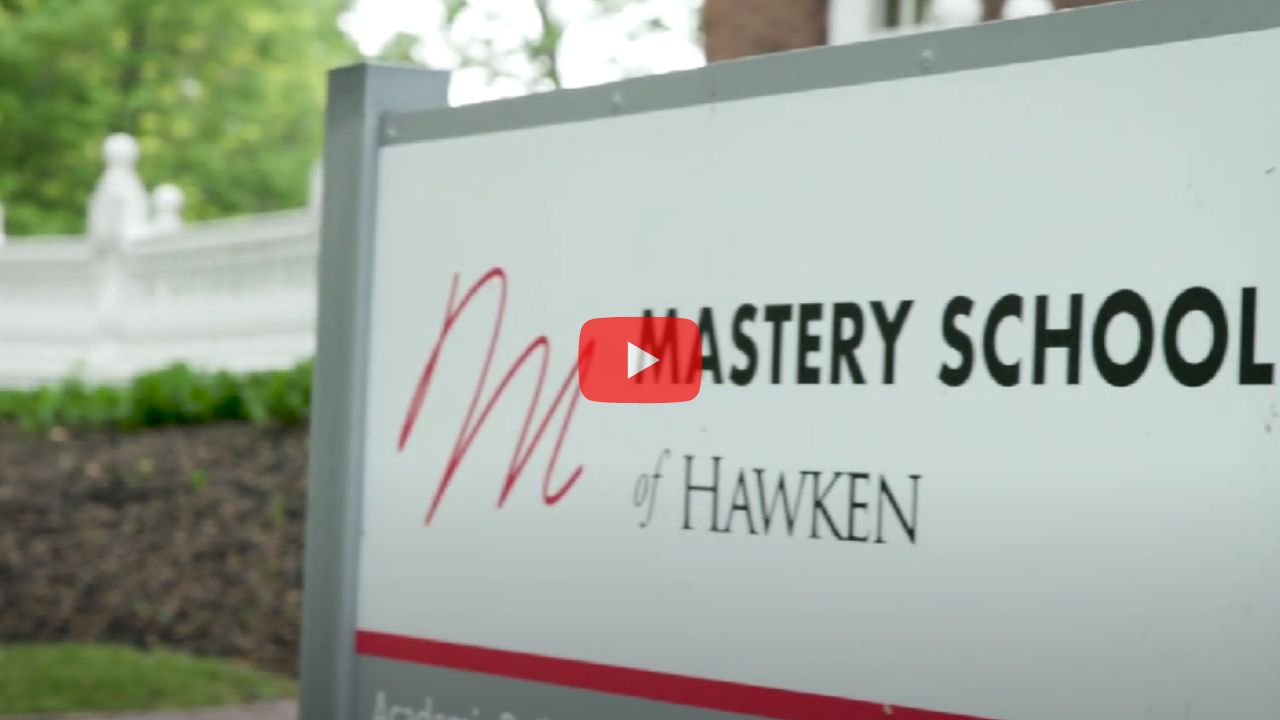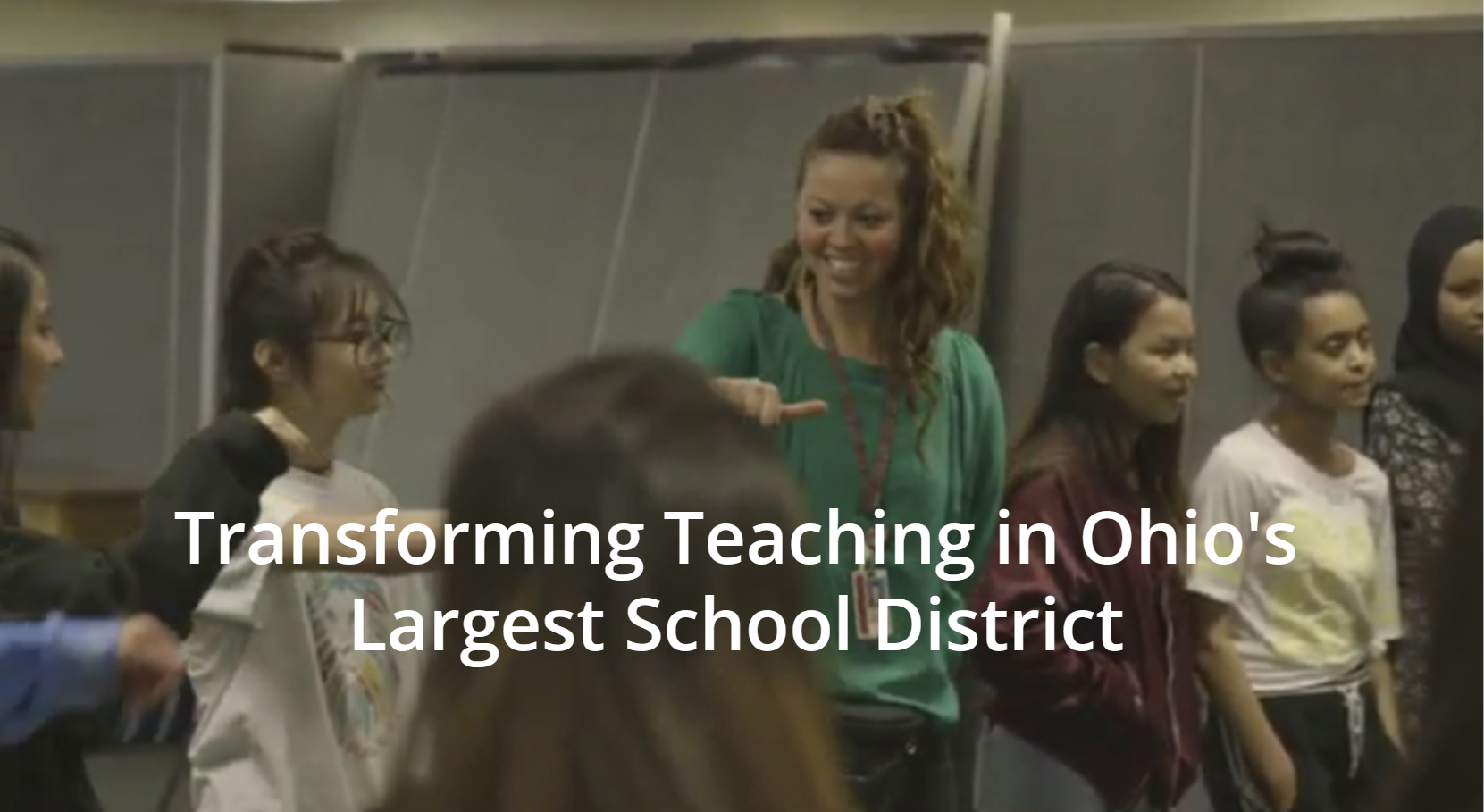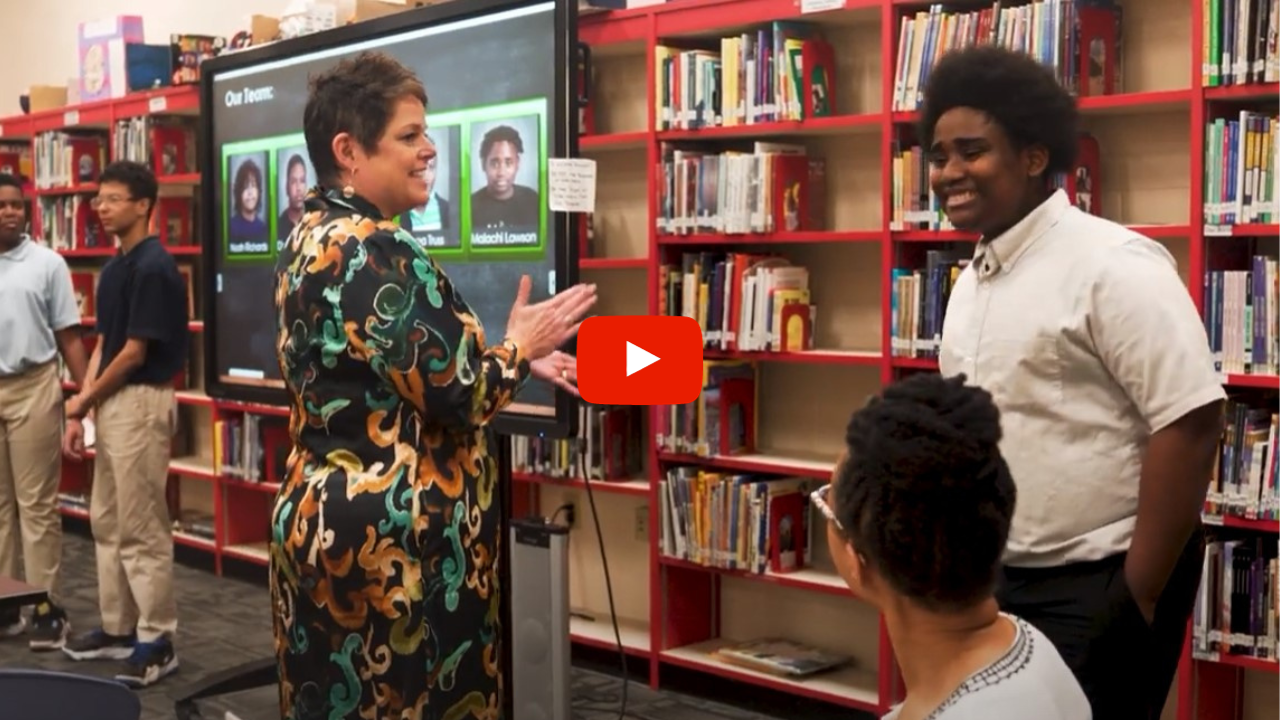In this episode, Doris explains the role of citizenship in Hawken’s Entrepreneurial Studies program and why she claims “we already have a social entrepreneurship class.” Doris describes how News Circle brings the rest of world into the class and the long-term, positive impact it has on the students.
Alison: So a number of people often ask, “Do you have a social entrepreneurship course or part to your program?” What is your response, generally, to that?
Doris: Oh, that’s funny. So I always respond that sure, we already do. Social responsibility and social impact is integrated in everything we do. But I think I’d like to actually frame this a different way.
We talk about the purpose, the goal of this program to be the mastery of skills, right? One of the skills, when listing the skills that are the real biggies in this . . . problem solving, critical thinking, collaboration, communication . . . One of the ones I always throw in there is citizenship. I actually think I’d wait to answer your question.
Let’s talk about citizenship for a minute. So if you think about what does that mean, how do you develop in a person . . . how do you have a person, a human, even if they’re sixteen, they’re still human. How do you take a 16-year-old or a 17-year-old and say, okay, I’m going to do something in this course, that they come in, they’re coming to school, they’re taking a course, and somehow in the four months or five months, we’re going to be working on having them develop citizenship.
How do you do that? I guess this is where . . . I want to talk about “how,” but first I want to talk about “what.” When I think about citizenship, what does that mean? To believe that I have a responsibility to leave the world better than I found it. To me, that’s sort of, if I believe in the real importance of being a really good, contributing . . .
Alison: Citizen.
Doris: . . . citizen, Mm-hmm. Then implicit in that is that I believe it’s important to leave the world better than I found it if I possibly can. It’s like actually anything. If you care about it, then you’ll think about it and you’ll work on it. It’s sort of the operating mantra or lens for everything we’re talking about.
When I taught math . . . I just got this random thought . . . when I first started teaching, I was 38 or so, I had been . . . I hadn’t been in a high school since I’d been a teenager myself and been out in the world, working. And there I was, I was going to teach a, for starters, one math class in high school.
The wise woman at the school who hired me . . . she wasn’t wise to hire me, but she happened to be wise. She probably was desperate to hire me. Anyway, the wise woman, her name was Sharon Jackson and she’s . . . I said, “Okay, I’ve never taught. What words of advice do you have before I walk in the door there?” And she said, “You know, for starters, you just need to get them to trust you. If they trust you, the rest will happen. Worry about the other stuff, what the topics are, the content, worry about that after they trust you.”
Well, she was very right. What I learned was that there were really two things. They had to trust me and they had, more than anything else, to believe that whatever they were about to learn, mattered. It’s back to that. “Why? Why should I know this, why is it meaningful to me, not to you, to me?” You know my line, it’s not about what you teach, it’s about what they learn. It’s all about that.
Same is true for citizenship. We can create a social entrepreneurship class, or we can have a class about gender equality, or we can have a program on character development, or whatever. There are a lot of fabulous programs, amazing, awesome and powerful programs.
At the end of the day, where they have impact is because someone going through that program has had a personal experience that has really, really made a difference in how they engage and connect with the meaningfulness or the importance of whatever it is.
When I think about citizenship, all these things are part of that. Character development, integrity, open-mindedness, this thing we call diversity, which is really about understanding, deeply understanding, the . . .
Alison: Having empathy.
Doris: . . . having empathy, knowing that you don’t know. You know? That I can’t really know anything in terms of how something feels for somebody else. I can’t really get that. I can appreciate it, I can try to reflect on it, but I can’t really get it, etc.
All those things are requirements for being, for the rest of your life, in every fiber of your being, devoted to being a good citizen. It’s not a checkbox, okay, I take the trash out and I . . .
Alison: Recycle . . .
Doris: . . . do my laundry and I do my this and I recycle, check, I did my citizenship thing today. Right? So here’s what we do.
We know what the typical teenage life is like. They come in the door and the first thing we do on the first morning is we say, “Okay everybody, we start every class in the following way. Please stand in a circle.” And we stand in a circle.
“This is called our News Circle. Sometimes we only have two-minute News Circles, sometimes it goes maybe 15 minutes. It depends on what we’re doing. But the first day I say pick a news source. It doesn’t matter what it is, but it has to be one that’s updated daily. If you’re into music, pick a music blog, I don’t care, but every morning I’m going to ask what’s new. And if I say ‘Hey Alison, what’s new?’ I’d like Alison to tell me what was new last night, not what was new a week ago.
Alison will tell me, ‘Oh my gosh, I read my music blog and da-da-da-da-da.’ And I’ll then say, ‘Okay, so why is that interesting?’ and Alison will say why it’s interesting.”
So at first, like many things, it’s awkward and single people answer when I ask them and that’s about it. But very, very soon, as students listen to what other students bring into the circle and why they think it’s interesting, and we’re also then talking about the problem we’re working on and business and the mission of that organization and why what they’re doing matters, how it matters, why doing it well, why we care about helping them and what they should, etc.
All of a sudden, students are making little connections. It’s all about patterns, right? Recognizing patterns. They themselves start putting the patterns together, and they slowly, iteratively, day at a time, in those early days, they bring the rest of the world into this class. That’s really what happens.
It’s crazy cool because if you came to that first one . . . actually it’s the second day of class, when we first say okay, what’s new and someone says ah, I read that Donald Trump, da-da-da.
And then I say, “Why is it interesting?” “It’s interesting because…” and then they give a simple little answer. Then somebody else brings up a whole different news story. Then you come even three weeks later, let alone three months later, and you experience a News Circle and we have to cut News Circle off because we don’t have enough class time for News Circle to last, it would last endlessly. Because they feed off each other, and one story that one student starts with can bounce back and forth. You’ve seen it, bounce back and forth. And before you know it, you’re talking about was . . .
Alison: The Arab Spring, or . . .
Doris: . . . the Arab Spring fueled by social media or not, you know, etc. So and that starts with a sports story, who knows. In the meantime, several other things are happening. So that’s something that every single morning is happening.
By the way, just as an aside, one of the things that students have consistently told us after, months after they finished the course, is they never, ever read the news or listened to the news prior to the course. Since the course, they feel like something’s missing if they’re not looking daily.
So that’s not something we lecture on, that’s not something we prescribed, they don’t have to bring an article in.
Alison: Well, and to mention that throughout there’s the conversation as well about media sources and how you consume information and that you prompt them often midway through the class to change whatever . . .
Doris: Well, yeah, you’re right, I say is there a danger in getting everything from one source? Then they typically are the ones who say yeah, you know what? We should follow another, etc. So that’s one thing, but there’s lots of other things.
So here’s the other one, one other one, in terms of citizenship, how we develop. So that’s a huge one. Every problem that these students work on is complicated and real and ever-changing and has so many different layers to it. Whether there’s an explicitly stated social mission or not to the business, it doesn’t actually matter.
You still can’t really be deep in the work of solving that business’s problem, owning and feeling that you’re working on behalf of this business. Without contemplating and considering the way in which the business conducts itself and the impact of the business on the community, the world, the industry, whatever it is. That’s one part of working on the overall problem.
So having students reflect on these things, even things like the CEO and things the founder has done or not done. Or as you scale or as the business scales, what happens if they go into this neighborhood versus that neighborhood and what’s the impact and why? Or what are the distribution channels and by the way, does it matter if as the business scales, it chooses sources for its products that are green or not? These aren’t, “Okay class, now we’re going to talk about environmental friendliness or sustainability.” They’re part of it all.
That’s really the point, isn’t it? The point is not for us all to compartmentalize all these things. In the world, we don’t. So how wonderful if in school, even, as students are learning these things, even in the course of their academic work, they’re complicated and integrated. They have to connect and engage with them in a way they will have to in the real world. They have decisions to make through the whole course. You know this.
Here’s a huge part of the curriculum—that’s reflection, feedback. So it’s not just reflecting and feeding back on yourself, it’s about what matters and decisions and what do you think the impact is of that? What do you think is right? How do you go . . .?
So there’s no right or wrong, and there are lots of different opinions, and people, actually they learn how to voice them and how to couch them in a pretty sophisticated ways. You saw it, the difference . . .
Alison: Absolutely.
Doris: . . . between how they bring something up at the beginning. In fact, one of the really fun things for us to see every semester is when they come in and they first decide okay, I’m going to actually volunteer a news story. And they tell their news story and why is it interesting and they give a strong opinion, they throw it out into the middle, and then there’s all kinds of other stuff and there are questions and we’re always answering questions with questions.
They learn from their peers and reactions from their peers, whoa, I guess I didn’t consider everything. Ooh, ah, I didn’t think about that. So that by the time, we’re later in the semester, and they’re saying the same story, and you say, why is it interesting? When they’re saying why they think it’s interesting, they’re doing it in a way that makes it so clear that they’re already considering . . .
Alison: Other perspectives.
Doris: . . . other perspectives and that there are other perspectives and that maybe theirs is not as fully informed.
Alison: Exactly.
Doris: So anyway, it’s a complicated answer, but it’s a complicated task to develop citizenship, isn’t it?
Alison: Well, and I think that it’s exciting to watch the students move through that process and to see them starting to form their own values. I know you often say it’s cool that we live at a time where, truly these students are being exposed to businesses with double or triple bottom lines that, that’s just commonplace now, to have a social mission equally important to making a profit.
The books that they’re choosing to read on a weekly basis for their book reports, over the weekend they choose to spend their time reading a book by a social entrepreneur and then reflect in light of what’s going on in the business challenge they personally have and think well, wow, why aren’t we using distribution channels that are green or something like that. It’s pretty amazing to watch a young person developing this early and imagine where that will take them years down the road.
Doris: And because of technology and the way they’re growing up, they’re growing up from a very early age, surrounded by media. Barraged by things happening all over the world. They really want to work on something that’s meaningful. They want to, they want, this generation, and it’s lovely. They want to make a difference, they want to make their world a better place.
They’re going to work hard to make, if they’re given choices and options, they’re going to work hard, most of them, to find things to work on that are going to make an impact.
In fact, one of the things that’s interesting, and I thought about this actually last night, is that, there are multiple reasons, but one of the reasons we need to really rethink how we do the end of this particular class where they’re working on their real, creating their own business models for the problems they choose, is because we’ve done so much to get students to reflect on what matters to them and how they want to use their time. This, my favorite term opportunity cost, like if you work on this, you’re choosing not to work on all these other things.
We’ve done so much to cue them up before they get to the final part of the class, so that they’re thinking of problems they really actually will care about. It’s a long story how we did it before and it didn’t . . . but anyway. That we’re making the last few week project much more challenging, because students are coming in to the last part of the class, which is the fully Lean LaunchPad part. They’re coming in with big problems they want to solve, and they’re finding what a surprise, you can’t figure it out in four weeks. Right? It’s not so easy.
You do all those things, and again, I think at the bottom, the bottom line is that if you go into this really, really thinking always about what is it they’re going to learn and how are they going to learn it, you’re going to be looking for opportunities to have them interested in the answer to a question.
They’re going to find the patterns. You mentioned book choices. They choose books that matter to them for what they’re working on now. They then get crazily excited because it’s relevant, that book. Look at some of these kids, when they read a book and they come in and they’re on fire to share what they’ve done.
The other piece, and we’ll talk about this later, but the other piece that’s a massive part, a huge part, of this developing citizenship, is everything we do around teamwork and collaboration, which is of course, a massive part of the class.


